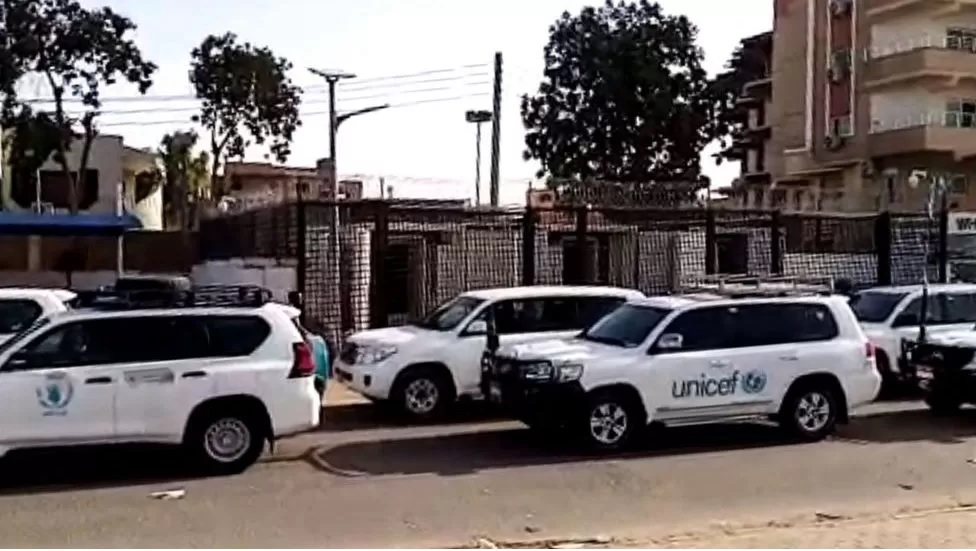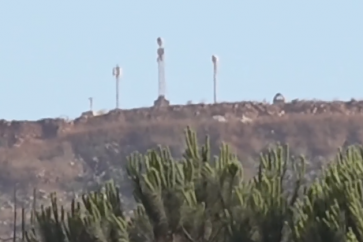In light of the ongoing and ferocious hostilities in Khartoum, several countries have initiated diplomatic evacuations of their citizens and envoys from the Sudanese capital.
The United States and the United Kingdom recently disclosed that they have transported their diplomats out of the country, with France, Germany, and Italy also making preparations to evacuate their nationals.
A power struggle between the regular army and a formidable paramilitary force has plunged the country into a state of protracted violence.
The US authorities have disclosed that they deployed three Chinook helicopters in a “fast and clean” operation to airlift fewer than 100 individuals.
First evacuations of our EU diplomats and citizens have started from Khartoum.
Thank you to @JosepBorrellf and European diplomats for their ongoing efforts and resilience.
Thanks to France for leading this work and to Djibouti.@EmmanuelMacron @IsmailOguelleh
— Charles Michel (@CharlesMichel) April 23, 2023
Notwithstanding, the US embassy in Khartoum has been shuttered, and a tweet on its official handle asserts that it is not safe enough for the government to evacuate private US citizens.
Meanwhile, the UK government has executed a “complex and rapid” operation to transport British diplomats and their families out of the country, although Foreign Minister James Cleverly has conceded that options for evacuating the remaining British nationals are “severely limited.”
The ongoing power struggle has led to heavy bombardment in the capital, resulting in hundreds of fatalities and thousands more injuries. In addition to local residents, there are many foreign students from Africa, Asia, and the Middle East who are now stranded in Khartoum.
Lebanese Evacuated
On Sunday, the Minister of Foreign Affairs and Expatriates in Lebanon’s caretaker government, Abdallah Bou Habib, was informed by the Lebanese Ambassador to Sudan that the initial phase of evacuating Lebanese citizens from Khartoum was successfully completed.
These citizens had assembled in front of the Rotana Hotel, and were successfully transported overland to the Coral Hotel in Port Sudan, where they arrived safely after a long and arduous journey.

The Ministry of Foreign Affairs and the High Relief Commission are expected to release further updates as the situation progresses, with the ultimate goal of ensuring the secure transfer of Lebanese citizens from Port Sudan to their homeland.
On Saturday, several countries were able to execute successful evacuations from Sudan, evacuating over 150 individuals, primarily citizens from Gulf countries, as well as Egypt, Pakistan, and Canada, by sea to the Saudi Arabian port of Jeddah.
However, reports have emerged that internet connectivity has almost entirely collapsed in Sudan, which could severely impede coordination of relief efforts for those trapped in Khartoum and other affected cities.
Impossible Choice
Days after armed conflict erupted in Sudan, residents were faced with an impossible choice of fleeing the capital of Khartoum or staying.
Khartoum has historically been a haven for people escaping civil wars in the far peripheries of Sudan, such as Darfur, the Nuba Mountains, and South Sudan, before the latter became a country of its own in 2011. For decades, civilian and army elites have militarized and extracted resources from the margins, such as oil and gold, in order to enrich themselves, while providing just enough to placate residents in Khartoum.
However, the capital is now the epicenter of armed conflict between the army and a violent paramilitary force known as the Rapid Support Forces (RSF). Both have set up checkpoints and clashed indiscriminately, resulting in a mounting death toll and acute shortages of food, electricity, and water.

The harrowing conditions have triggered a mass exodus and transformed Khartoum, a bustling city of five million residents, into a ghost town. “
Those fleeing Khartoum are heading east to Port Sudan, a region relatively safe and with sea routes connecting to Djibouti and Egypt.
In addition to fleeing east to Port Sudan, others are driving north to Egypt. However, only children, the elderly, and women can enter the country without visas. Young Sudanese men between the ages of 16 to 49 must apply for visas one day in advance at the Egyptian consulate in Wadi Halfa, a city near the border with Egypt. This requirement risks momentarily separating families, as many prepare to say goodbye to their sons, brothers, and fathers in hopes of reuniting soon.
However, the roads to Egypt are not entirely safe, with reports of RSF fighters robbing and looting cars at gunpoint. This ambivalent security situation has made coordinating an escape a nightmare.
Source: Al-Manar English Website




